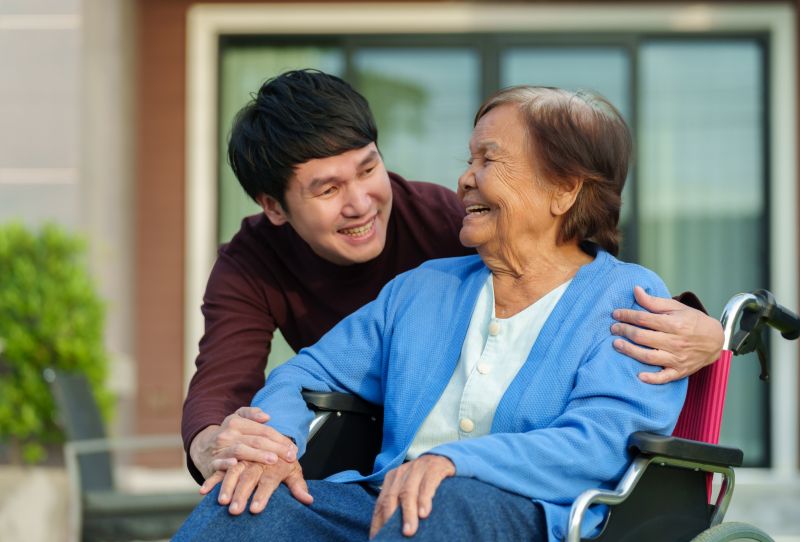Navigating Language Barriers as a Caregiver in a Foreign Country
iSavta | 09.07.2023

In an increasingly globalized world, the need for caregivers in foreign countries has become more prevalent. Many individuals and families seek caregivers from different cultural backgrounds to provide care for their loved ones. However, this can also present challenges, particularly when it comes to language barriers. Navigating these language barriers as a caregiver requires patience, adaptability, and effective communication strategies.
One of the first steps in overcoming language barriers is to acknowledge the importance of effective communication. As a caregiver, clear communication is crucial for understanding the needs and preferences of the person under your care. It is essential to establish open lines of communication with both the care recipient and their family members. Take the time to listen attentively and try to understand their concerns, desires, and expectations. Be patient, and encourage them to express themselves, even if it takes a little longer or requires extra effort.
When faced with a language barrier, it is also helpful to learn the basics of the local language. Even a few simple phrases can go a long way in establishing rapport and showing respect for the local culture. Consider enrolling in language classes or using language learning apps to improve your communication skills. By making an effort to learn the language, you demonstrate your dedication to providing the best care possible.
Additionally, utilizing visual aids and non-verbal communication can be invaluable tools for overcoming language barriers. Pictures, gestures, and facial expressions can often convey meaning more effectively than words alone. Use visual cues to demonstrate activities or actions, and encourage the care recipient to do the same. By incorporating non-verbal communication techniques, you create an environment that fosters understanding and connection.
In some cases, hiring a professional interpreter or translator can be a viable solution. When important medical or legal information needs to be communicated, having a qualified professional who can accurately interpret and convey the message is essential. Interpreter services can often be arranged through healthcare providers, community organizations, or language service agencies. It is crucial to ensure that the interpreter is proficient in both the local language and your native language to facilitate effective communication.
Technology can also be a valuable resource in overcoming language barriers. There are numerous translation apps and devices available that can help bridge the language gap. These tools can provide real-time translation, allowing you to communicate with the care recipient and their family more effectively. While relying solely on technology may not be ideal, it can be a useful supplement to face-to-face communication.
Cultural sensitivity and understanding are vital when working as a caregiver in a foreign country. Each culture has its own unique set of customs, traditions, and values. Take the time to educate yourself about the local culture, customs, and etiquette. Showing respect and sensitivity to these cultural nuances can help build trust and strengthen the caregiver-care recipient relationship. It is also crucial to be aware of any cultural differences that may impact the care you provide. For example, dietary preferences, religious practices, or beliefs about healthcare may differ from what you are accustomed to. By adapting your caregiving approach to align with the cultural context, you can create a more inclusive and comfortable environment for the care recipient.
Finally, building a support network can be invaluable when navigating language barriers. Seek out local community organizations or support groups that cater to caregivers or individuals from your cultural background. These networks can provide a space for sharing experiences, seeking advice, and finding emotional support. Connecting with other caregivers who have faced similar challenges can be empowering and reassuring.
Navigating language barriers as a caregiver in a foreign country can be a challenging yet rewarding experience. By prioritizing effective communication, embracing cultural sensitivity, and utilizing available resources, caregivers can provide high-quality care while bridging linguistic gaps. Remember that every effort made to overcome language barriers is a step towards providing compassionate care and fostering a sense of connection with those under your care.
Read more about Personal Wellness

Personal Wellness











